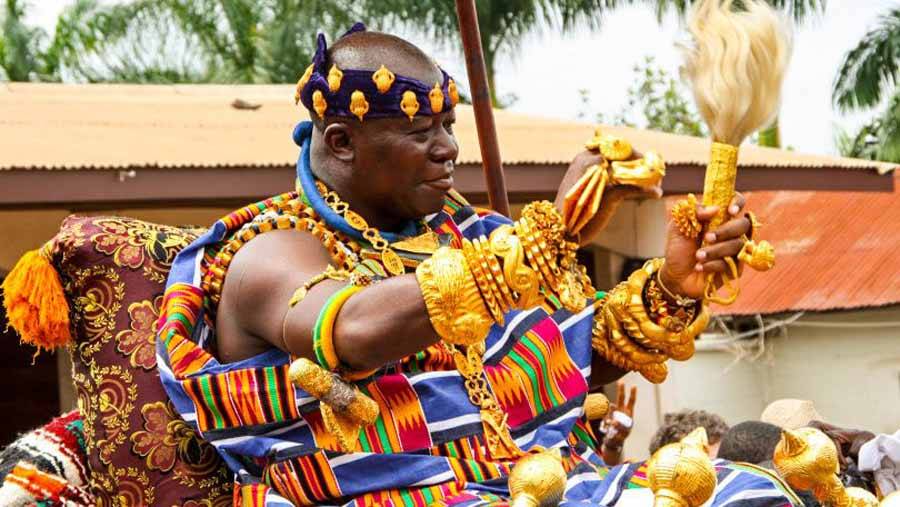The Asante Kingdom: A Rich History and Cultural Heritage of Ghana
Ghana, a country located in West Africa, is home to a diverse range of cultures and traditions. One of the most prominent and influential kingdoms in Ghana's history is the Asante Kingdom. The Asante Kingdom, also known as the Ashanti Empire, was a powerful and prosperous kingdom that existed from the 17th to the 20th century. In this article, we will explore the history, culture, and significance of the Asante Kingdom.
The Asante Kingdom was founded in the 17th century by Osei Tutu, a powerful and wise leader who united the various Asante clans and states under his rule. The kingdom's capital was Kumasi, which became a major center of trade, commerce, and culture. The Asante Kingdom was known for its rich gold deposits, which made it a major player in the trans-Saharan trade.
One of the most significant aspects of the Asante Kingdom was its complex system of government. The kingdom was divided into several districts, each ruled by a chief who was responsible for collecting taxes, maintaining law and order, and providing military service to the kingdom. The king, known as the Asantehene, was the supreme ruler of the kingdom and was believed to have divine authority.
The Asante Kingdom was also known for its rich cultural heritage. The kingdom was famous for its goldwork, wood carvings, and textiles. The Asante people were skilled craftsmen who produced intricate gold jewelry, ornate wood carvings, and colorful textiles. The kingdom's culture was also influenced by its strong tradition of storytelling, music, and dance.
The Asante Kingdom played a significant role in Ghana's history, particularly during the colonial era. The kingdom resisted British colonial rule, leading to several wars, including the Anglo-Asante Wars. The most notable of these wars was the Yaa Asantewaa War of 1900, led by the queen mother, Yaa Asantewaa, who rallied the Asante people to resist British colonial rule.
Today, the Asante Kingdom continues to play an important role in Ghana's cultural and traditional life. The kingdom's traditional leaders, including the Asantehene, continue to play a significant role in Ghana's traditional governance system. The kingdom's cultural heritage, including its goldwork, wood carvings, and textiles, continues to inspire artists and craftsmen around the world.
In conclusion, the Asante Kingdom is a significant part of Ghana's history and cultural heritage. The kingdom's rich history, complex system of government, and vibrant cultural heritage make it a fascinating topic of study. The kingdom's resistance to British colonial rule and its continued importance in Ghana's traditional governance system make it a powerful symbol of African pride and resilience.
_Timeline of the Asante Kingdom:_
- 17th century: The Asante Kingdom is founded by Osei Tutu.
- 18th century: The kingdom becomes a major player in the trans-Saharan trade.
- 19th century: The kingdom resists British colonial rule, leading to several wars.
- 1900: The Yaa Asantewaa War of 1900 is led by the queen mother, Yaa Asantewaa.
- 20th century: The kingdom continues to play an important role in Ghana's traditional governance system.
_Key Figures:_
- Osei Tutu: Founder of the Asante Kingdom.
- Yaa Asantewaa: Queen mother who led the Yaa Asantewaa War of 1900.
- Asantehene: The supreme ruler of the Asante Kingdom.
_Sources:_
- "A History of the Asante Kingdom" by Ivor Wilks.
- "The Asante Kingdom: A Study of the History and Culture" by T.C. McCaskie.
- "Yaa Asantewaa and the Asante-British War of 1900-1" by A. Adu Boahen.




Dogbe Jonathan
Dec 22, 2024keep up
Dogbe Jonathan
Dec 22, 2024keep up